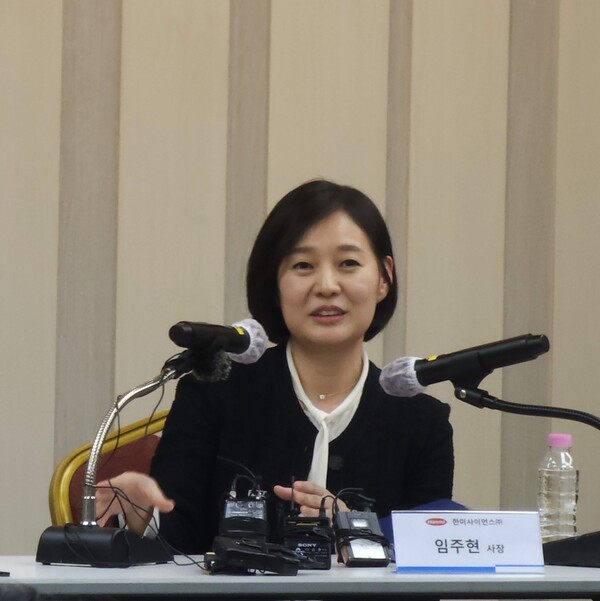Hanmi Group Chairman Song Young-sook and her daughter have gained a decisive edge in the ongoing management conflict within the founding family after securing support from the National Pension Service (NPS), which has emerged as a deciding factor in this corporate governance battle.

On Tuesday evening, the NPS announced its decision to support the current management team led by Chairman Song, endorsing all six board members proposed by her, just two days before the crucial shareholder meeting of Hanmi Science, the group's holding company.
In contrast, the pension fund opposed all five directors nominated by Song's sons, Coree Group Chairman Lim Jong-yoon and Hanmi Fine Chemical CEO Lim Jong-hoon. The NPS stated its belief that the nominees from the current management are more aligned with long-term shareholder value enhancement.
This backing from the NPS, which holds 7.66 percent in Hanmi Science, has allowed Chairman Song (holding 11.66 percent) and her eldest daughter, Lim Joo-hyun (holding 10.2 percent), the president of Hanmi Science, to consolidate a favorable position.
Combining their direct family shares, those of allied special interest entities, and the support from the NPS, they now control an estimated 43 percent of the company's shares.
On the other hand, Lim Jong-yoon and Jong-hoon, with their family and allies, hold around 40.57 percent of the shares.
The shareholder meeting slated for Thursday this week is expected to solidify the current management's hold over Hanmi Science, with the board likely comprising Chairman Song, her daughter, and their integration partner, Lee Woo-hyun, chairman of OCI Holdings.
However, neither faction has secured a majority, turning the spotlight on the small shareholders, who hold about 20.5 percent of Hanmi Science's shares, representing 99.9 percent of the total shareholder count.
The backdrop of this familial discord was the brothers' legal challenge to the merger with OCI Group, which they opposed. However, a significant legal hurdle was removed when the Suwon District Court ruled in favor of Chairman Song and her daughter, thereby supporting the merger's progression, on Tuesday.
In response to the court's decision and the support from the NPS, Chairman Song and her daughter expressed their gratitude, emphasizing the legitimacy of the merger and their commitment to enhancing shareholder value. They also vowed to intensify efforts to gain further support from small shareholders.
Previously, Chairman Song had named her daughter, Lim Joo-hyun, as the legitimate successor to Hanmi Group, following in the footsteps of the founder, Lim Sung-ki. The brothers, undeterred by the dismissal of their injunction, have pledged to appeal the decision and continue their fight through a main lawsuit.
The family dispute stemmed from a January decision when OCI Holdings acquired a 27 percent stake in Hanmi Science through a 770.3 billion won investment, making it the largest shareholder, while Song's daughter and others acquired a 10.4 percent stake in OCI Holdings.
The move was contested by the Lim brothers, who argued against the merger's financial and strategic rationale, given Hanmi Science's record performance and no urgent need for financial restructuring.
Related articles
- Court rejects Hanmi brothers' bid to halt OCI Holdings share issuance
- Hanmi Group dismisses two sons from management role as family feud over merger with OCI intensifies
- Uncertainty looms over Hanmi and OCI merger as key shareholder's stand emerges
- Will strengthened Bukwang add a new wing of OCI-Hanmi?
- [Reporter's Notebook] The abandoned Hanmi-OCI merger shows the power of the small shareholders
- Hanmi officials withdraw from OCI Holdings board nominees as merger falls through
- Hanmi Science appoints youngest son as new Co-CEO

